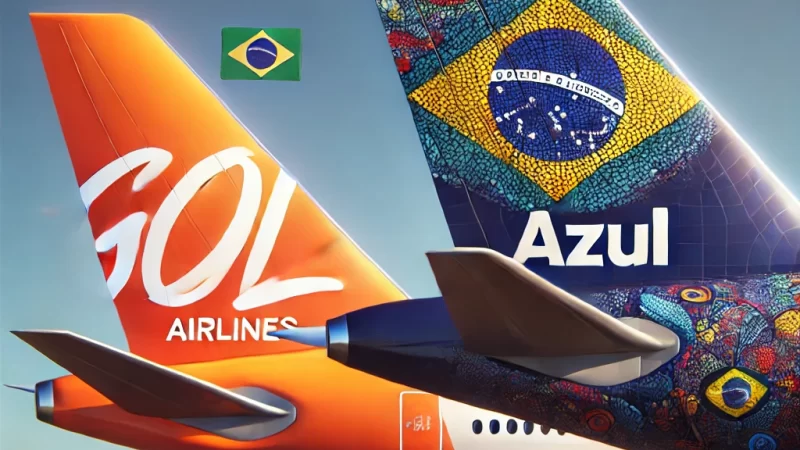Azul may become Brazil’s number 1 Airline

Azul SA, Brazil ’s third-largest airline, may become No. 1 as it moves away from its regional origins with a $6.5 billion order for bigger planes funded in part with proceeds from an initial share sale.
With leases and purchases for 63 Airbus Group NV (AIR) A320neo jets, Azul is poised to operate its largest planes ever on domestic routes. Including its fleet of ATR turboprops, Embraer SA regional jets and Airbus wide-bodies, Azul could offer about 3,000 more seats than the country’s dominant airlines, Gol Linhas Aereas Inteligentes SA and Latam Airlines Group SA’s Tam unit, based on the carriers’ current fleets.
“We are going to grow the cake, not steal from our competitors,” Antonoaldo Neves, Azul’s president, said in an interview last month. “There’s no reason the market can’t double.”
Azul, the discount carrier founded by David Neeleman , filed to sell shares to the public in the U.S. and Brazil yesterday, saying it planned to use the funds for fleet expansion and to add service to high-demand locations in the U.S. and on long-haul domestic routes.
Brazil’s airline association has said domestic demand is expected to rise to about 200 million passengers by 2020 from about 100 million currently.
Azul, which began in 2008 by flying to small, underserved cities in Brazil, has maintained its market share at about 17 percent since it bought Trip Linhas Aereas SA two years ago. It has the largest network in the country, serving 103 destinations, the company said in its filing.
The carrier is set to receive its new Airbus planes through 2023, just as Gol takes on about 100 new Boeing Co. 737 Max jets during the same period.
Similar Logic
“It’s not hard to imagine that their logic could be similar to ours,” said Gol Chief Executive Officer Paulo Kakinoff at an investors conference yesterday. “Our flow of the receipt of airplanes is identical.”
Tam didn’t respond to an e-mail request for comment.
Azul’s share sale comes during a period with few Brazilian offerings. The equity issuance market stagnated this year as the economy slipped into a technical recession in the first half of the year.
Azul, which means “blue” in Portuguese, has been considering an IPO since at least May 2013, only to have previous attempts scuttled by market selloffs. It last canceled plans to go public in March as the benchmark Ibovespa plummeted to an almost five-year low.
A bill to subsidize regional routes expired in Congress last week without a vote. If it had passed, it would have prompted Azul to buy new Embraer jets starting next year to serve about 15 new destinations annually. Without such a subsidy, Azul will fly bigger planes to compete with its rivals in larger cities, Neves said. The legislation is slated to be reintroduced in January.
Azul also has a letter of intent to buy 30 E2 E-Jets from Embraer, which it should sign by the end of the year, Embraer said in an e-mail on Oct. 9.




